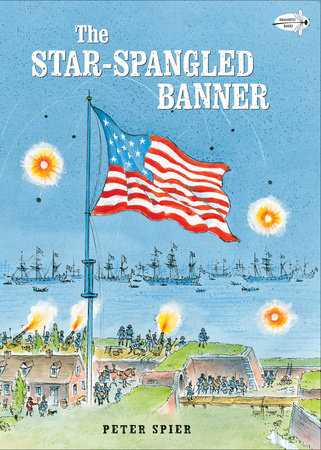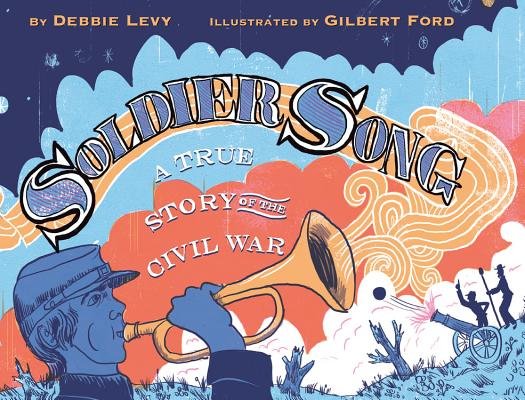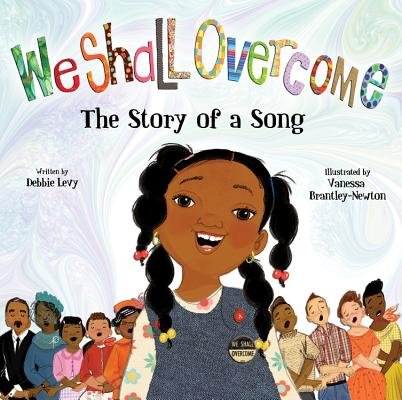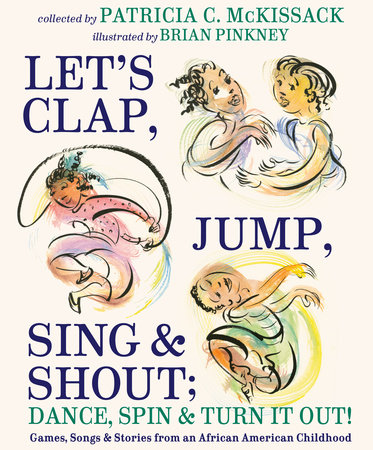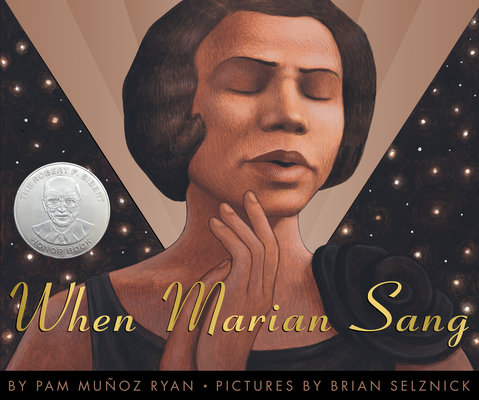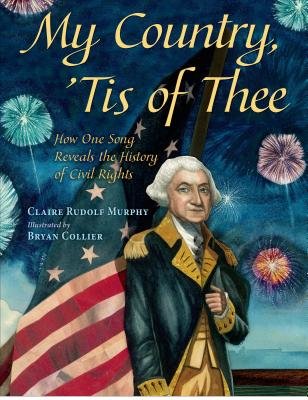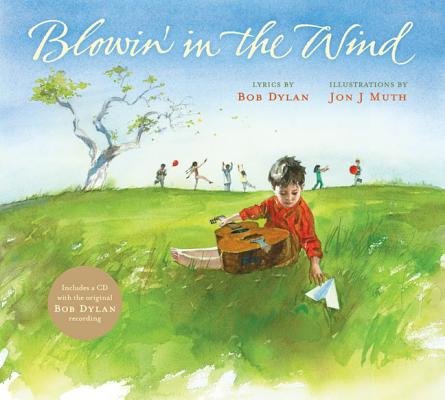7 Books About the Songs That Have Shaped Our Lives — and History
by Laura Lambert
So many of the songs I grew up singing have new meaning to me now that I’m adult. “This Land Is Your Land,” for instance, was very much a banal children’s song when I was a second grader, an edgier brand of patriotism when I heard it belted out by Sharon Jones and the Dap Kings, and another kind of anthem entirely when Lady Gaga sang it at this year’s Super Bowl. Songs can hold many meanings, which change over time. That’s part of their power.
Here are seven books featuring other songs that are more than just melody — they are part of the fabric of our politics, our protests, and our culture, from the very start of our country.
-
The Revolutionary Era
-
The Star-Spangled Banner
Available from:From the Olympic podium to the seventh inning stretch to Fourth of July celebrations, America’s national anthem is a mainstay of our big-time events — but few know more than scant details of the song’s origin. Peter Spier’s book tells the story of the song, penned when Francis Scott Key saw, on September 14, 1814, a tattered American flag — then with only 15 stars — still waving over Fort McHenry during the Battle of Baltimore, part of the lesser-known War of 1812. The Americans had endured a brutal night of British bombing, and it gave him hope.
And the rockets' red glare,
The bombs bursting in air,
Gave proof through the night
That our flag was still there.
O say, does that star-spangled banner yet wave
O'er the land of the free and the home of the brave(Ages 5 - 8)
Also available from:
-
Civil War
-
Soldier Song: A True Story of the Civil War
One night, after the Battle of Fredericksburg in December 1862, something pretty amazing happened. As was typical, the regiment bands on both the Union and Confederate sides would play songs at night. On this particular night, close to Christmas, they joined together to sing the same song, “Home, Sweet Home,” which carried a universal message for each man, despite his allegiances in the Civil War.
Mid pleasures and palaces though we may roam,
Be it ever so humble there’s no place like home!
A charm from the skies seems to hallow us there,
Which, seek through the world, is ne’er met with
elsewhere:
Home! Home! Sweet, sweet Home!
There’s no place like Home!
There’s no place like Home.(Ages 9 - 12)
Preorder from:
-
Civil Rights History
-
We Shall Overcome: The Story of a Song
Also by Levy, We Shall Overcome tells the story of a song that has resonated from the era of slavery through the civil rights movement and through protests against injustice that continue today.
We shall overcome,
We shall overcome,
We shall overcome, some day.Oh, deep in my heart,
I do believe
We shall overcome, some day.The familiar stanzas repeat with slightly different lyrics each time.
We'll walk hand in hand… We shall live in peace… We shall all be free… We are not afraid…
With its mixed-media collages and free-verse text, We Shall Overcome conveys the long arc of history that accompanies this song.
(Ages 6 - 10)
Preorder from:
-
African American Culture
-
Let’s Clap, Jump, Sing & Shout; Dance, Spin & Turn It Out!
Available from:Among the familiar anthems, songs, and spirituals are the simple song-based games and playground rhymes that children act out every day. This book by Patricia McKissack details the historical — and sometimes hidden — meanings in everything from “Miss Mary Mack” to the backstory of “Amazing Grace,” all through the lens of African American culture and history. Something as seemingly innocuous as “Patty-Cake” is re-contextualized as a song taught to the slaves who cared for the slave-owners' children — and made richer by revealing versions (there are more than 30) that come distinctly from the African American community.
Patty-cake, patty-cake, baker man.
Make me a cake as fast as you can.
Roll ‘em over, roll ‘em over; put him in the pan.
Then bake ‘em in the oven, Mr. Patty-Cake man.(Ages 1 - 10)
Also available from:
-
Civil Rights History
-
When Marian Sang: The True Recital of Marian Anderson
Sometimes it’s the voice behind the song that shapes history. In 1939, Marian Anderson, an African American contralto and one of opera’s most celebrated voices, sang before an integrated crowd of more than 75,000 at the Lincoln Memorial. This was in the days of segregation, and despite her internationally celebrated fame, Anderson had been banned from singing at Constitutional Hall, which was had a “white-only” clause in its contract. With the help of first lady Eleanor Roosevelt, her concert was moved someplace that could accommodate the massive crowds who had come to hear her sing. She opened with “My Country ‘Tis of Thee” and finished with three spirituals — and made history.
When Marian Sang tells the story of Anderson’s life, from choir girl to age 18, when, despite her three-octave range, Anderson was rejected from music school because of her race, to age 57, when she finally debuted at the Metropolitan Opera. But it is also the story of changing racial dynamics in the United States.
(Ages 4 - 8)
Preorder from:
-
American History
-
My Country, 'Tis of Thee: How One Song Reveals the History of Civil Rights
“My Country, ‘Tis of Thee,” is not just the patriotic anthem you sang in grade school, but many different songs that reflect the changing nature of our country.
As part of the women’s rights movement in the 1970s:
God save each Female's right,
Show to her ravished sight
Woman is Free;
Let Freedom's voice prevail,
And draw aside the veil,
Supreme Effulgence hail,
Sweet Liberty.For the early labor movement:
My country, 'tis of thee,
Once land of liberty,
Of thee I sing.
Land of the Millionaire;
Farmers with pockets bare:
Caused by the cursed snare –
The Money Ring.During the fight for women’s suffrage in 1920:
Our country, now from thee
Claim we our liberty,
In freedom's name.
Guarding home's altar fires,
Daughters of patriot sires,
Their zeal our own inspires,
Justice to claim.Rudolph’s book shows how one song morphs for each chapter of the fight for American freedoms, including Marian Anderson’s historic moment singing it in 1939.
(Ages 5 - 9)
Preorder from: -
Blowin’ in the Wind
Bob Dylan’s iconic song, “Blowin’ in the Wind,” was a mainstay of the ‘60s protest movements — and is presented for children in this book alongside lovely illustrations by Caldecott Honor medalist Jon J. Muth.
How many times must a man look up
Before he can really see the sky?
How many ears must one person have
Before he can hear people cry?
How many deaths will it take 'til he knows
That too many people have died?The answer, my friend, is blowin' in the wind
The answer is blowin' in the wind.(Ages 4 - 8)
Preorder from:

